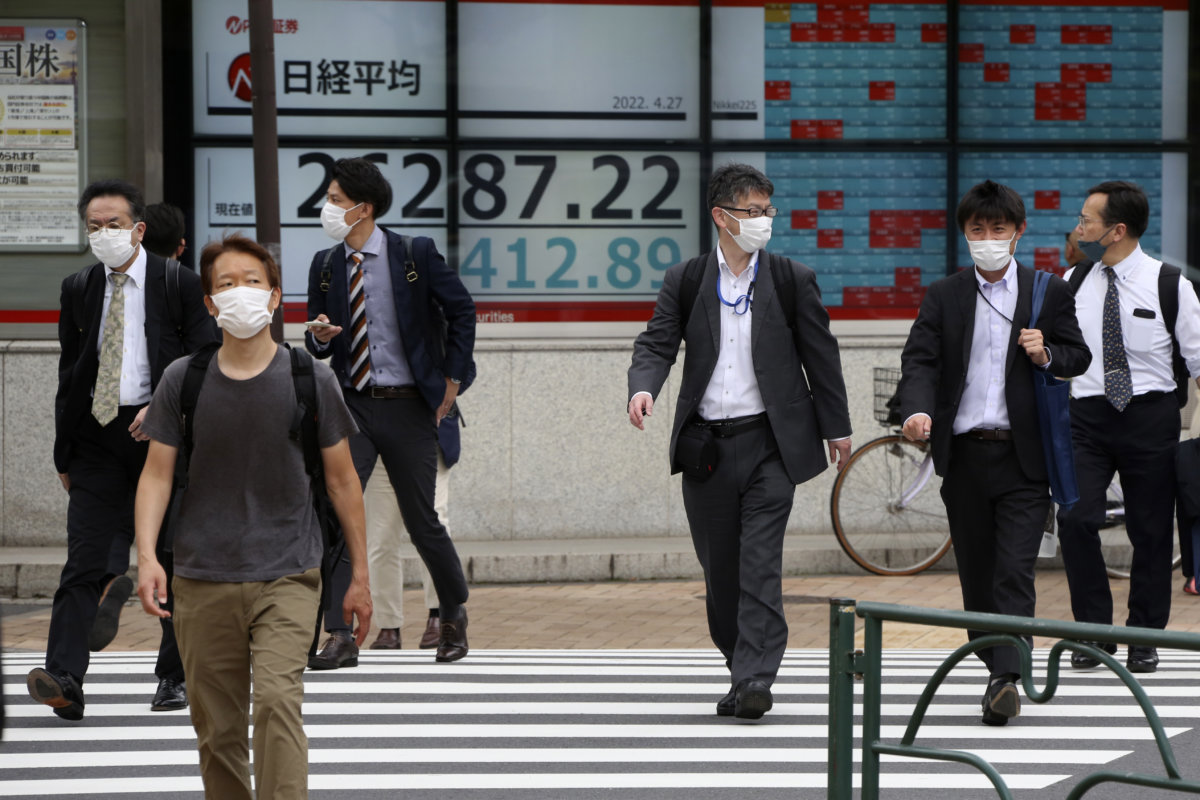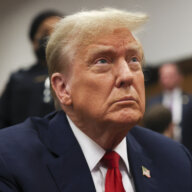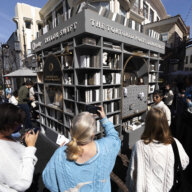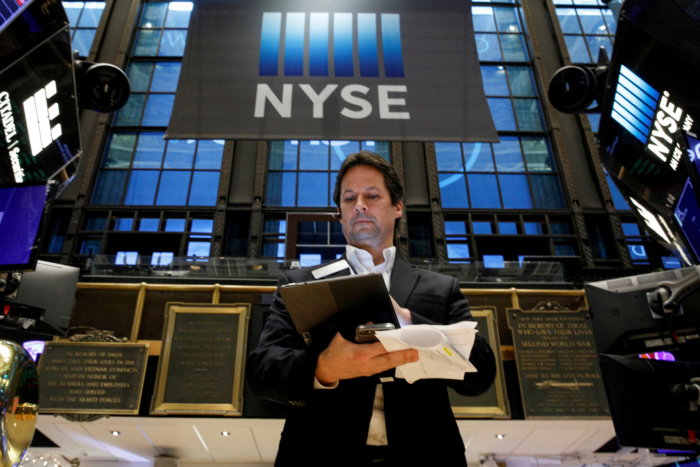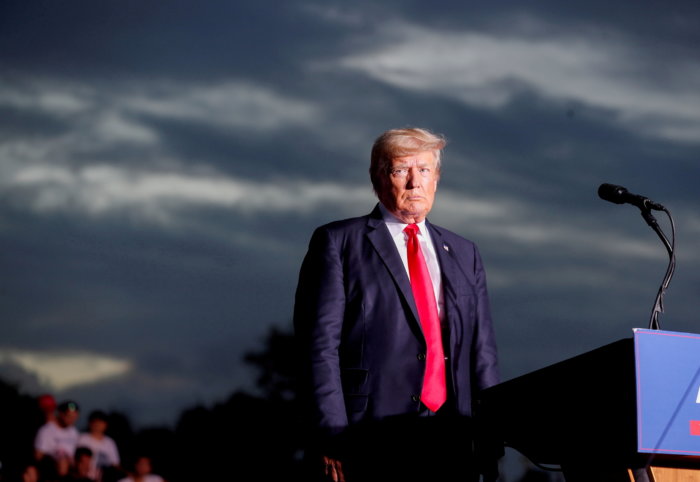Wall Street appeared ready for a rebound when the market opens Wednesday after some lackluster corporate earnings, the war in Ukraine and concerns over coming interest rate hikes led to sharp declines to start the week.
Futures for the Dow Jones Industrials rose 0.8% and the S&P 500 rose 0.6% following gains in Europe and mixed trading in Asia.
Earlier gains, with Dow futures up 400 points, have faded however.
Natural gas prices surged as much as 24% in Europe and the euro weakened after Russia said it would cut off supplies to Poland and Bulgaria.
Faith Birol, head of the International Energy Agency in Paris called Moscow’s actions a “weaponization of energy supplies,” and said the organization would support the two countries while encouraging other European countries to reduce reliance on oil and gas from Russia.
“The move increases the possibility of a near-term stand-off between Russia and the rest of the EU on whether to meet Russia’s demand to pay for gas in rubles,” said Stephen Innes, managing partner at SPI Asset Management.
Britain’s FTSE 100 led the way in Europe at midday, gaining 0.7%. France’s CAC 40 rose 0.5% and Germany’s DAX edged up 0.3%.
In Asia, the Shanghai Composite index gained 2.5% and the smaller Shenzhen benchmark jumped 4% after state media reported various efforts by the ruling Communist Party to counter the blow to the economy from pandemic lockdowns in dozens of cities and resulting disruptions to trade and manufacturing.
Among various moves by the central bank and other regulators, a meeting of the Central Committee for Financial and Economic Affairs chaired by President Xi Jinping on Tuesday backed the building of infrastructure “conducive to China’s industrial development and national security,” the Communist Party newspaper Global Times reported.
Analysts said investors are watching for the outcome of a meeting of the party’s powerful Politburo this week for further measures to boost slowing growth in the world’s second-largest economy.
“Given the COVID-related downward pressure on the economy, we expect more policy easing to support growth, and the government has been ramping up policy support recently,” Tao Wang of UBS said in a report.
Elsewhere in Asia, stocks tracked an overnight rout on Wall Street.
Tokyo’s Nikkei 225 dropped 1.2% to 26,386.63 after Japanese Prime Minister Fumio Kishida announced measures to help poor families and small businesses cope with rising prices and a weakening currency.
Elsewhere, South Korea’s Kospi slipped 1.1% to 2,639.06 and the Hang Seng in Hong Kong was little changed at 19,946.36.
Australia’s S&P/ASX 200 shed 0.8% to 7,261.20 as strong inflation data reinforced expectations that the central bank will push ahead with interest rate hikes.
The war in Ukraine, apart from the risks of broader conflict, has pushed already inflated prices for many commodities and goods still higher, complicating the economic outlook and posing hardships for many businesses and consumers.
Earnings for industrial and retail companies are a key focus for the rest of the week. Boeing on Wednesday posted a $1.24 billion loss for the first quarter, far greater than Wall Street had been expecting, with both its commercial and defense business struggling.
Shares slid 4% before the opening bell.
Industrial bellwether Caterpillar announces earnings on Thursday, along with McDonald’s and Amazon.
With the U.S. Federal Reserve also set to aggressively hike rates as it steps up its fight against inflation, traders are less and less willing to endure the lofty prices they had been paying for tech giants. Shares in Google’s parent company, Alphabet, tumbled more than 4% in off-hours trading after the company reported sales and profit that fell short of Wall Street’s expectations.
Meta, formerly Facebook, reports on Wednesday, with Apple’s results coming on Thursday.
In energy trading, benchmark U.S. crude dipped 7 cents to $101.63 a barrel in electronic trading on the New York Mercantile Exchange. Its price rose 3.2% on Tuesday. Brent crude, the international pricing standard, was flat at $104.63 per barrel.
In currency trading, the U.S. dollar climbed to 128.08 Japanese yen from 127.23 yen late Tuesday. The euro cost $1.0577, down from $1.0639 and near a five-year low.



